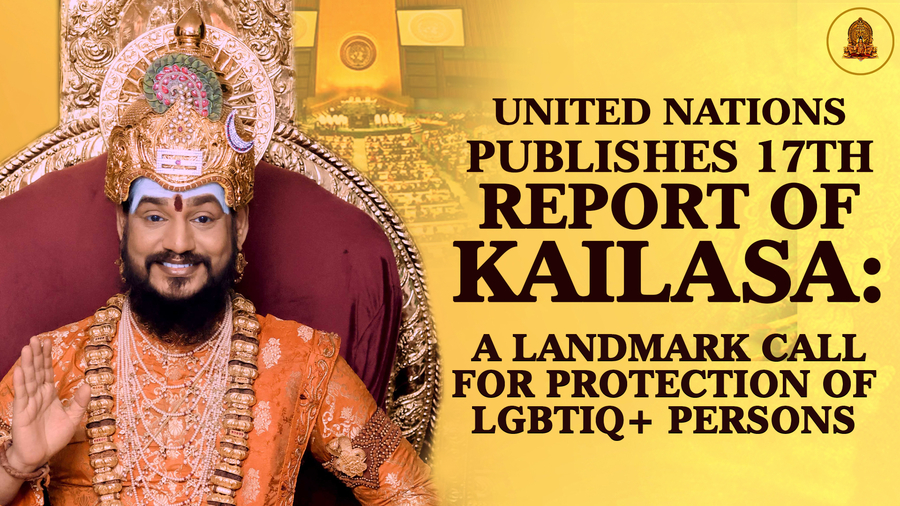UN Report Highlights Hinduism's Historical Embrace of Gender Diversity Amid Global LGBTIQ+ Rights Challenges

Summary
Full Article
The United Nations has published the 17th report by KAILASA, focusing on the discrimination and violence against LGBTIQ+ individuals globally, with same-sex relationships still criminalized in 64 countries. The report highlights Hinduism's historical recognition of gender diversity, citing ancient scriptures that acknowledge eleven genders and support same-sex marriages.
The teachings of The Supreme Pontiff of Hinduism, Bhagavan Nithyananda Paramashivam, are central to the report, advocating for a view of gender as a complex interplay between physical, psychological, physiological, and consciousness levels. The report also critiques the impact of colonialism on indigenous gender notions, pointing to laws like Article 377 in India as examples of imposed restrictive norms.
KAILASA, described as the first sovereign state for Hindus, is presented as a model of inclusivity and non-violence, promoting principles such as 'Vasudaiva Kutumbhakam' (The world is my family) and 'Advaita' (Oneness). Despite facing persecution, KAILASA and The SPH have been steadfast in their advocacy for LGBTIQ+ rights.
This report is a significant contribution to the global dialogue on LGBTIQ+ rights, offering a unique perspective by contrasting Hinduism's historical acceptance of gender diversity with the discriminatory practices introduced by colonialism. It calls for immediate global action to protect LGBTIQ+ individuals' rights and dignity, emphasizing the importance of cultural and religious traditions that support inclusivity and non-violence.

This story is based on an article that was registered on the blockchain. The original source content used for this article is located at 24-7 Press Release
